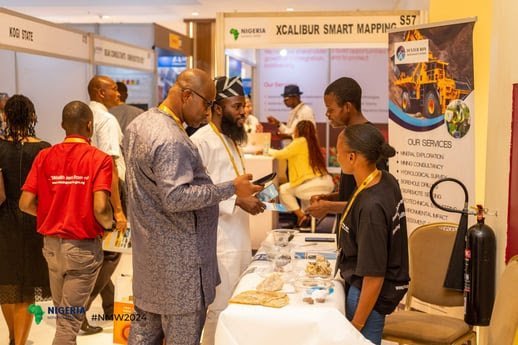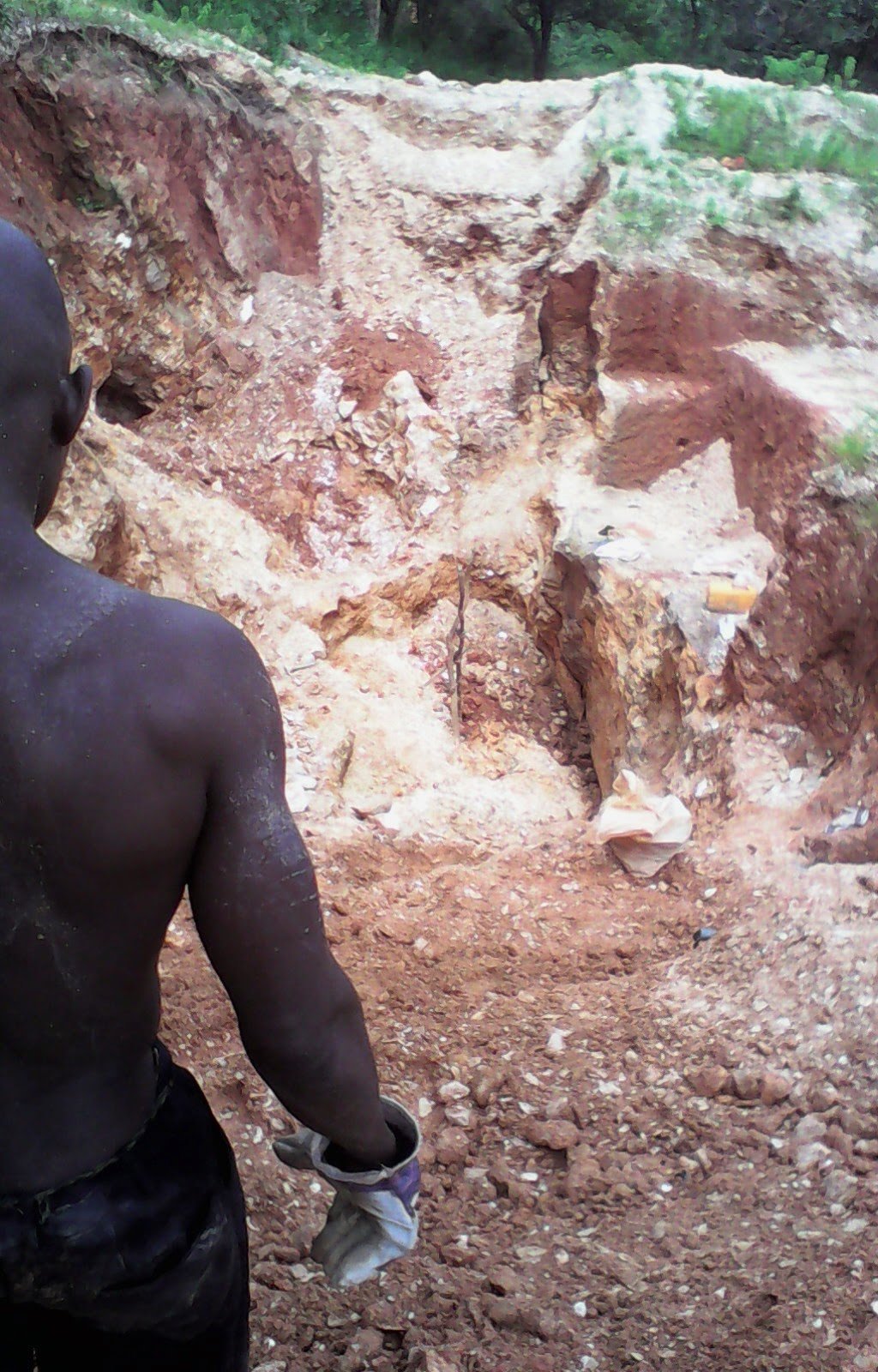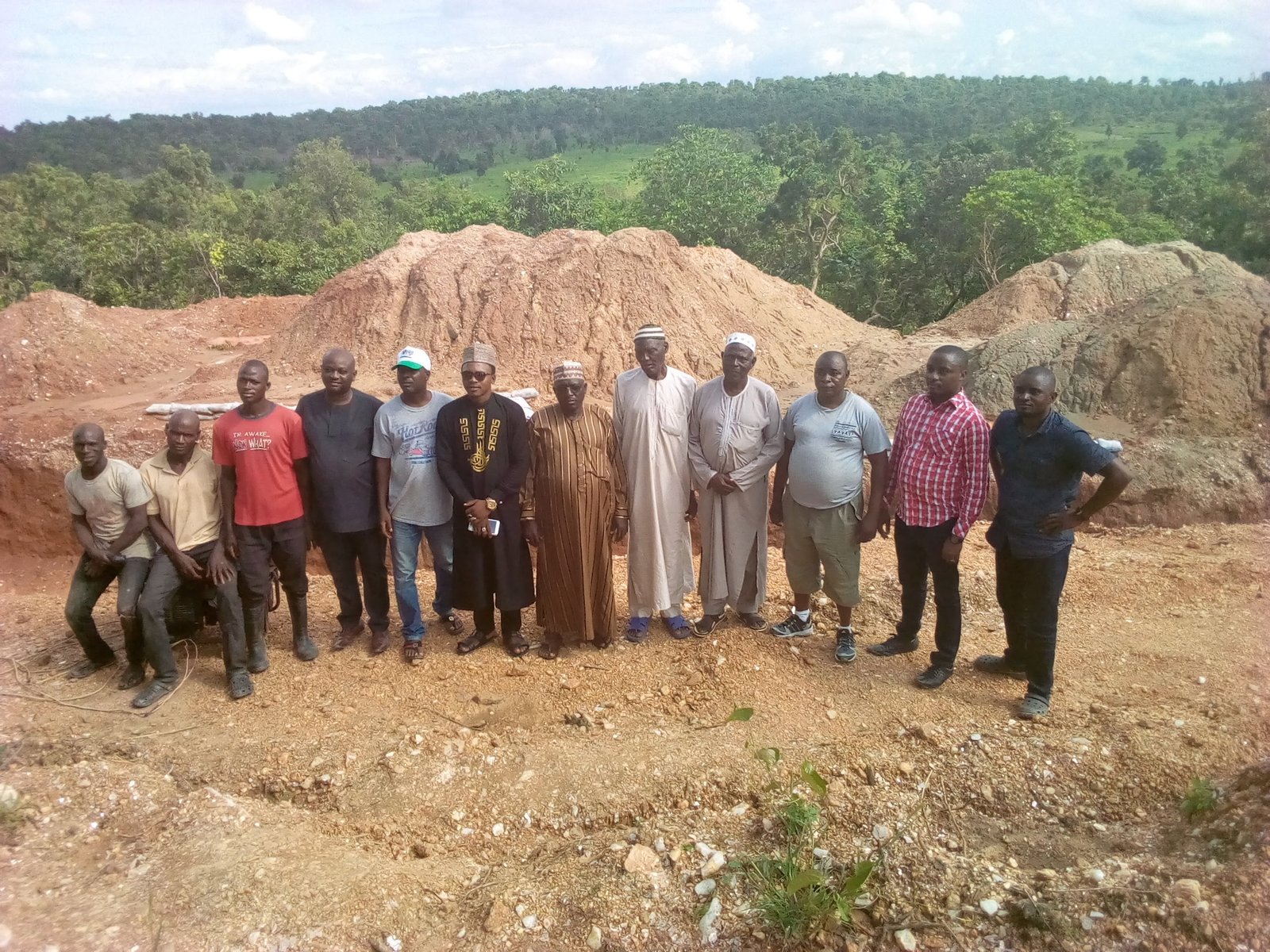Nigeria, a nation rich in natural resources, presents a compelling investment opportunity for domestic and international investors. The country’s burgeoning gold mining sector, in particular, offers significant potential for growth and profitability. With abundant gold reserves, supportive government policies, and a robust global demand for gold, Nigeria is poised to become a major player in the worldwide mining industry. The Allure of Nigeria’s Gold Several factors contribute to Nigeria’s attractiveness as a gold mining destination: Navigating the Golden Path: Potential Rewards and Risks Investing in Nigeria’s gold mining sector offers significant rewards, including: However, it’s essential to acknowledge the associated risks: Seizing the Opportunity: Identifying Promising Investments To identify promising investment opportunities in Nigeria’s gold mining sector, consider the following strategies: Optimizing Gold Mining Operations: Key Tools and Equipment To maximize returns and minimize risks, gold mining companies should invest in the following tools and equipment: By carefully considering these factors and adopting best practices, investors can capitalize on the significant potential of Nigeria’s gold mining sector and contribute to the country’s economic growth and development, while creating wealth for themselves.
A Week in Review: Developments in the Nigerian Mining Industry
The Nigerian Mining Week 2024 marked a pivotal event in the Nigerian mining industry, from November 18 to November 20, 2024. This annual gathering provided a platform for stakeholders, including government officials, industry experts, and potential investors, to engage in meaningful discussions regarding the sector’s future. The event was characterized by an atmosphere of anticipation, signaling a collective commitment to advancing the industry. The objectives of Mining Week 2024 were clearly defined, focusing on promoting sustainable mining practices, enhancing investment opportunities, and facilitating technological advancements within the sector. Key discussions revolved around the potential for mineral resources to contribute significantly to Nigeria’s economic growth. Notable presentations highlighted innovative approaches to mineral extraction and processing, with an emphasis on environmental sustainability, which has increasingly become a focal point in global mining practices. Representatives from Federal and State government agencies also played a crucial role in the proceedings, underscoring the importance of public-private partnerships in driving industry development. Their presence indicated a robust commitment to reforming regulations and creating a more enabling environment for mining activities, which is vital for attracting investment. Additionally, industry leaders participated in panel discussions and workshops, where they shared insights on best practices and challenges facing the mines in Nigeria. The atmosphere throughout Mining Week 2024 was one of engagement and optimism, characterized by networking opportunities that allowed stakeholders to forge valuable connections. As discussions unfolded, it became clear that the mining industry holds significant promise for Nigeria, reflecting a shared vision for a prosperous future. Overall, Mining Week 2024 served as a vital milestone, reinforcing the critical role of mining in Nigeria’s economic landscape and ensuring ongoing dialogue among key players in the industry. Government Initiatives and Commitment The Nigerian government has exhibited a renewed commitment to reforming and developing the mining sector under the leadership of President Bola Tinubu. Recognizing the importance of this industry in driving economic growth, the administration has articulated a series of initiatives designed to unlock the full potential of the nation’s mineral resources. Central to these efforts is the pledge to implement comprehensive reforms that will streamline operations within the mining sector, thereby fostering an environment conducive to investment and innovation. One of the most notable announcements made during this period was the establishment of a mining development bank, which aims to provide financial support and tailored services for mining operations across Nigeria. This initiative is expected to enhance access to capital for both emerging and established mining enterprises, facilitating crucial investments into exploration and production activities. Furthermore, the government has surpassed its N10 billion revenue target, a sign that the ongoing efforts are yielding positive results and that the mining sector is on a path toward rejuvenation. These developments underscore the government’s intention to position Nigeria as a competitive player in the global mining landscape. By prioritizing the mining industry, the administration seeks to create a robust framework that encourages responsible mining practices, enhances technological adoption, and promotes sustainable resource management. As a result, stakeholders in the industry can anticipate benefits that extend beyond mere financial gains, including job creation and infrastructural development. In conclusion, the government’s commitment to reforming the mining sector signals a promising era for Nigeria’s economic landscape. With strategic initiatives and a focus on sustainable practices, the nation stands poised to unlock significant growth opportunities in the mining industry, reflecting its true potential as a catalyst for national development. Sustainable Practices and Technological Advancements During Mining Week 2024, the Nigerian mining industry showcased substantial developments in sustainable practices and the integration of advanced technologies. Emphasizing environmentally responsible methods, industry leaders engaged in informative discussions about minimizing the adverse impacts of mining operations. Initiatives aimed at reducing carbon emissions, managing waste, and rehabilitating mined areas were highlighted. The adoption of sustainable practices is crucial in addressing global concerns over climate change and the pressing need for more responsible resource extraction. One of the focal points was the incorporation of innovative technologies, which are paving the way for enhanced operational efficiency and safety. The use of automation and remote-controlled machinery has been increasingly recognized for its role in mitigating risks to human operators. Furthermore, data analytics and artificial intelligence are being leveraged to optimize production processes and ensure more precise resource management. These advancements not only improve profitability for mining operations but also contribute to a safer work environment. Global trends emphasize the importance of sustainability in mining, and Nigeria is poised to align its practices with these expectations. The discussions during Mining Week underscored that adopting modern technologies is not just about improving efficiency, but also about fulfilling social responsibilities towards local communities and ecosystems. Emphasizing sustainable mining practices ensures compliance with international regulations, promoting Nigeria as a competitive player in the global mining market. Overall, the commitment to sustainability and technological advancement reflects a transformative shift in the Nigerian mining sector. As these practices gain traction, they will play a pivotal role in shaping the future landscape of mining in Nigeria, supporting both economic growth and environmental stewardship. The integration of these methodologies is essential for fostering resilience and long-term viability in an evolving industry. Looking Ahead: Challenges and Opportunities The Nigerian mining industry stands at a crossroads, grappling with significant challenges while simultaneously presenting numerous opportunities for development. One of the foremost obstacles is inadequate infrastructure, which hampers operational efficiency and increases costs. Poor road networks, limited access to electricity, and insufficient processing facilities hinder the ability of mining companies to transport minerals and compete effectively. Therefore, addressing these infrastructure deficits is paramount for unlocking the industry’s full potential. Security issues represent another critical challenge. Regionally, the mining sector faces threats from illegal mining activities, armed groups, and environmental degradation. These factors not only jeopardize the safety of personnel but also pose serious risks to investment, which reduces the willingness of stakeholders to engage in the Nigerian mining landscape. A concerted effort towards enhancing security within mining regions is essential for encouraging both local and international investments. Regulatory hurdles further complicate the situation.
The Rise of Artisanal and Small-Scale Mining in Nigeria: Navigating Opportunities and Challenges
Explore the vital role of artisanal and small-scale mining (ASM) in Nigeria’s economy. This article delves into the socio-economic impacts, challenges, government initiatives for regulation, and the necessity for sustainable practices in ASM. Discover how this sector supports livelihoods in rural communities while addressing environmental concerns and promoting responsible mining in the area.
The Role of Community Engagement in Sustainable Mining: Lessons from Nigeria
Understanding Community Engagement in Mining: Community engagement in the mining sector refers to the collaborative processes that involve stakeholders, including local communities, mining companies, and government bodies, in decision-making related to mining operations. This participatory approach is essential in fostering mutual trust and respect, which are crucial for obtaining a social license to operate. The concept recognizes that mining companies are not isolated entities but rather part of a broader socio-economic landscape that includes the communities directly affected by their activities. Effective community engagement facilitates an open dialogue, allowing stakeholders to voice their concerns, aspirations, and perspectives. This exchange is vital in identifying potential social and environmental impacts before they escalate into conflicts. For instance, addressing local community fears regarding ecological degradation and resource depletion through transparent communication helps mitigate opposition to mining activities. When communities see that their views are taken into account, it results in enhanced cooperation, ultimately leading to sustainable mining practices. Moreover, community engagement plays a critical role in promoting community development. By incorporating community needs and priorities into their operational frameworks, mining companies can contribute to local infrastructure, education, and healthcare, thereby improving the quality of life for residents. Such initiatives not only fulfill corporate social responsibility obligations but also foster goodwill and a positive relationship with the community. In the context of Nigeria, where mining plays an increasingly significant role in economic development, understanding community engagement becomes even more imperative. Stakeholders must work collaboratively to establish frameworks that ensure sustainable practices, minimize adverse impacts, and enhance community livelihoods. By prioritizing effective community engagement, the mining sector in Nigeria can navigate the complex social landscape and contribute positively to both local communities and the broader economy. Challenges of Community Engagement in Nigeria’s Mining Sector Community engagement is a vital component of sustainable mining practices; however, Nigeria’s mining sector faces significant hurdles that impede effective collaboration with local communities. One of the primary challenges is the lack of transparency in mining operations. When companies are not forthcoming about their activities, potential impacts, and benefits, it fosters suspicion and distrust among community members. This opacity can lead to opposition and resistance, undermining future engagement efforts. Another major obstacle is ineffective communication between mining companies and local communities. Many companies employ methods that fail to consider local languages and dialects, resulting in misunderstandings or a complete lack of acknowledgment of community concerns. This disconnect not only affects the dissemination of information but also diminishes the community’s trust in mining companies as partners. Power imbalances between mining corporations and local communities further complicate engagement efforts. Often, large companies wield significant influence over local governance structures, creating scenarios where community voices are marginalized. Such power dynamics can produce an environment where community input is not genuinely valued, leading to resistance against mining operations. Cultural barriers present another significant challenge. Different social norms, values, and practices can inhibit effective engagement. Companies may not adequately consider these cultural frameworks when designing their communication strategies, resulting in further alienation of local communities. Additionally, land tenure concerns complicate community engagement, as many communities lack formal recognition of their land rights. This absence of legal ownership can create conflicts over land use and resource allocation. Corruption is also a troubling factor that influences community engagement in Nigeria’s mining sector. Corrupt practices can result in the distribution of benefits being skewed, favoring a few individuals over the collective community. This lack of equitable benefit-sharing can exacerbate local grievances and hinder meaningful community engagement. Best Practices for Effective Community Engagement in Mining Successful community engagement is imperative for mining companies that aim to foster sustainable relationships with the communities in which they operate. To achieve this, several best practices can be effectively implemented. One of the foremost strategies is early and continuous engagement. Initiating conversations with community members before project commencement can build trust and establish a foundation for ongoing dialogue. This proactive approach allows mining companies to address concerns and expectations from the onset, fostering a more collaborative environment throughout the project’s lifecycle. Transparent communication is another critical component of effective engagement. Mining companies should strive to maintain open lines of communication regarding project developments, potential impacts, and benefits to the community. Utilizing various communication platforms, such as community meetings, newsletters, and digital media, can cater to diverse audience preferences and ensure that information is accessible and easily understood. Inclusivity in decision-making is essential for fostering ownership and acceptance within the community. Involving community stakeholders in discussions about operations, environmental concerns, and potential impacts empowers local populations and promotes a sense of shared responsibility. Capacity building further strengthens this engagement. By providing training programs and educational opportunities, mining companies can equip community members with the skills necessary for participation in local projects and decision-making processes. Social investment initiatives can also support sustainable community relations. Projects aimed at improving local infrastructure, education, and healthcare demonstrate a commitment to enhancing the well-being of the community, encouraging positive perceptions of mining activities. Additionally, establishing conflict resolution mechanisms can preemptively address disputes and tensions, ensuring that grievances are handled fairly and effectively. Finally, implementing robust environmental monitoring systems can assure communities that their ecosystem is being considered and preserved. By conducting regular assessments and sharing findings with the community, companies reaffirm their responsibility towards both people and the environment, fostering a collaborative atmosphere that ultimately enhances project success. Case Studies: Successful Community Engagement Initiatives in the Nigerian Mining Industry Community engagement in sustainable mining is vital for fostering trust and collaboration between mining companies and local populations. Several initiatives in Nigeria illustrate how effective engagement can yield positive results for all stakeholders. One notable case is the partnership between a major mining company and the local community in Enugu State, where initiatives targeted job creation and infrastructure development. Through collaborative planning, the mining firm established vocational training programs aimed at equipping local youths with valuable skills, leading to the creation of 200 jobs within a year. This not only empowered the local workforce but also enhanced the company’s operational
The Nigerian Mining Industry: Trends and Outlook
Nigeria, a nation blessed with abundant natural resources, is emerging as a significant player in the global mining industry. Beyond its traditional mineral wealth, the country boasts a diverse range of precious metals and gemstones, including lithium, tin, tantalite, lead, zinc, and various gemstones. Current Trends and Future Outlook The Nigerian mining sector is experiencing a period of rapid growth and transformation. Key trends shaping the industry include: A Diverse Mineral Landscape Nigeria possesses a diverse range of minerals, each with its own market potential: Challenges and Opportunities While the Nigerian mining industry offers immense potential, it also faces several challenges: However, these challenges also present opportunities for innovative solutions and strategic partnerships. By addressing these issues, Nigeria can unlock the full potential of its mining sector and contribute to economic growth and development. The Future of Nigerian Mining The future of the Nigerian mining industry is bright. With increased government support, technological advancements, and growing global demand, the sector is poised for significant growth. By embracing sustainable mining practices, fostering partnerships with international investors, and developing a skilled workforce, Nigeria can solidify its position as a leading mining nation.
Nigeria is The Rising Star of Global Mining
Nigeria’s Mining Sector is witnessing a new dawn! A nation traditionally known for its oil-rich economy, Nigeria is undergoing a seismic shift. The country’s vast mineral resources, progressive government policies, and a growing global demand for critical minerals are propelling Nigeria to the forefront of the global mining industry. A Rich Vein of Abundant Mineral Resources: Nigeria is endowed with a diverse range of valuable minerals, including: Government’s Commitment to Mining The Nigerian government has taken proactive steps to revitalize the mining sector: A Global Opportunity Nigeria’s mining sector offers immense opportunities for both domestic and international investors: Join the Mining Revolution Nigeria’s mining industry is poised to become a major player on the global stage. By embracing innovation, sustainability, and collaboration, Nigeria can unlock its full mining potential and secure a prosperous future for generations to come. Join the Nigerian Mining Industry now to secure your space in the unfolding mineral wealth bonanza!
Investment Opportunities in the Nigeria’s Mining Industry Services Sector
Nigeria’s mining industry, a burgeoning sector, offers significant investment opportunities beyond the extraction of minerals. The services sector, which supports and facilitates mining operations, is a key area for investors. Core Services: Exploration and Geological Services: Mining Engineering and Consulting Services: Logistics and Transportation Services: Support Services: Security Services: Training Services: Equipment Maintenance and Repair: Legal and Financial Services: Environmental Consulting: Human Resources Services: Catering and Accommodation Services: By investing in Nigeria’s mining industry services sector, investors can participate in the growth of the industry and generate significant returns. However, it’s essential to conduct thorough due diligence, understand the regulatory environment, and partner with experienced local companies to mitigate risks and maximize profits.
Gypsum Processing in Nigeria’s Booming Mining Industry
Nigeria’s mining and construction sectors are experiencing a period of tremendous growth. These surges in activities present a golden opportunity for investors to capitalize on gypsum processing, an abundant mineral in Nigeria, and a vital component in the building materials industry. Why Invest in Gypsum Processing in Nigeria? Gypsum Processing – Adding Value Through Different Methods: Considerations for Investors: Beyond Financial Gains: The Broader Impact Investing in gypsum processing offers not just financial rewards but also contributes to: Conclusion: Gypsum processing presents a compelling investment opportunity within Nigeria’s booming mining industry. With its abundant gypsum resources, growing domestic market, and government support, the industry is poised for significant growth. By carefully considering location, processing methods, and sustainability, investors can contribute to building a strong foundation for Nigeria’s economic future and reap the benefits of a thriving market.
Kaolin Processing: A Golden Opportunity in Nigeria’s Booming Mining Industry
Nigeria’s mining industry is experiencing a surge, and kaolin processing is emerging as a golden opportunity for investors. Kaolin, a versatile industrial mineral, finds applications in various products, from ceramics and paints to plastics and pharmaceuticals. Here’s why investing in kaolin processing in Nigeria is a strategic move: Unlocking Kaolin’s Potential: Processing Considerations Beyond Money: The Broader Benefits Investing in kaolin processing offers not just financial rewards but also contributes to: Conclusion: Kaolin processing presents a promising and strategic investment opportunity in Nigeria’s booming mining industry. With its abundant resources, growing domestic market, and government support, the industry is poised for significant growth. By carefully considering location, processing methods, and sustainability, investors can make a lot of money, while contributing to unlocking the value of Nigeria’s kaolin wealth and participating in the nation’s economic transformation.
Lithium Processing in Nigeria – A Lucrative Investment Opportunity
Nigeria is emerging as a major player in the global lithium market. Here’s why lithium processing is a compelling investment opportunity: Nigeria’s Lithium Advantage: Investment Considerations: Before diving in, consider these crucial factors: Potential Returns: Investing in lithium processing offers high potential returns due to: Next Steps: By carefully considering these factors and implementing a sound strategy, investors can tap into the vast ocean of the Nigerian lithium processing industry and contribute to the country’s economic transformation. For consultancy services on setting up a Lithium Processing Plant in Nigeria, call or WhatsApp: +2348130799304










